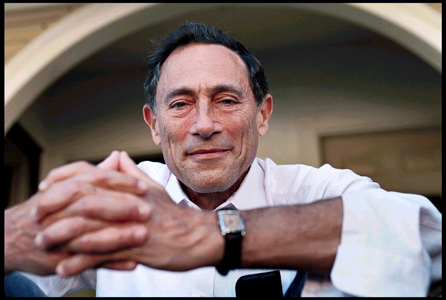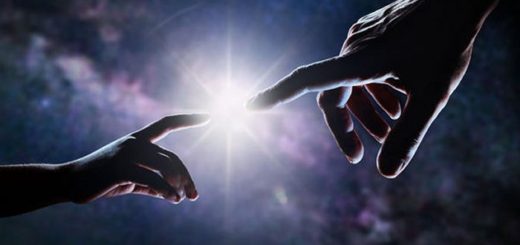Here in the Real World: The Olympic UFO

What is destined to become the most popular video on HuffPost over the next few days is of a purported UFO approaching the Olympic Stadium in London as fireworks are going off during opening ceremonies. Outside of porn, UFOs are probably the most clicked upon subject matter on the web. They are also increasingly recorded with the proliferation of camera phones. But no explanation is generally acceptable to all observers. Each event is considered separately and often dismissed as a camera artifact or light flare or aircraft lights or blimps.
But all of them?
Mainstream media has been mostly uncomfortable with the subject. Even The Huffington Post, which is more or less now a part of traditional media, publishes UFO stories under its “Weird News” category and when, invariably, a local news station gets video of something unexplainable from a viewer, the recording ends up at the back of a newscast and prompts Bob and Suzy Goodhair to make comments about “little green men.” The subject makes a lot of people uncomfortable and, consequently, they have to be dismissive. Hell, I’m going to get grief for even bringing up the topic.
I’m always amazed at the number of people, however, who will tell friends they have seen something in the sky or even up close that they simply cannot explain. They are often afraid, which is natural. I’ve never seen a damned thing and I am always looking and I spend more time outdoors than most people. There is an argument to be made, I suppose, that certain types of intellects are more susceptible to these experiences but the personalities and educations of witnesses cover a broad spectrum.
Which begs the question of what, exactly, is the UFO phenomenon about.
In the early 90s, I was the first journalist to interview John Mack, Ph.D, of Harvard about the human mind and UFOs. Mack was a professor at Harvard’s medical school and founder of it department of psychiatry and he was also a Pulitzer-winning biographer. He wrote the psychological history of T. E. Lawrence (of Arabia), and had been drawn to the strange topic of alien abductions by Budd Hopkins, a New York artist and researcher who was convinced the experiences were a part of physical reality. Mack, as an accomplished scientist and researcher, was professionally skeptical.
Mack began conducting interviews and performing hypnotic regressions on people claiming to have had human contact against their will with intelligent, non-human beings. (Insert scoffing or nervous giggles here.) After 200 sessions, he began to express the opinion that he had confronted a phenomenon that defied explanation. Contemporary science had rendered almost impossible the notion that his subjects were having these encounters in the real world but Mack said there was no doubt the experiences were real for his patients. We videoed a regression session and I listened to audio of several others and there was no question that the people recalling their experiences were extremely frightened. (And yes, I know the problems with hypnotic recall.) The narratives described the black-eyed beings with spindly limbs approaching through headlights and appearing at bedside and spiriting people away to craft where specimens were taken and visions of apocalypse were displayed.
How did a Harvard scientist take such stories seriously?
Mack concluded he had sufficient research for another compelling book. “Abduction: Human Encounters with Aliens” was the first publication by a mainstream researcher to take a scientific look at whether humans were being taken against their will by aliens. His conclusions were hardly definitive but Mack was convinced that the mind of his subjects had either recorded or interpreted the experiences as real. Eventually, he began to publicly discuss the notion that western ideas of reality might be limited and, consequently, they provided no explanation for what he had discovered. When he was asked if he thought aliens were abducting humans from their bedrooms and cars, Mack said, “No, but something very real is happening to these people.” Ultimately, he began to soften his resistance to that possibility and his words were sometimes interpreted to indicate he contemplated such a scenario as a reality.
Which got him into some trouble.
Mack was a tenured professor at Harvard and was investigated by a committee of his peers appointed by the dean of the medical school. Mack described the inquiry as “kafkaesque” but he was not chastened and continued his research. The committee, which had no disciplinary authority, censured Mack and accused him of methodological errors, but the dean reaffirmed the scientist’s right to conduct research without impediment. Mack’s work led to a second book, “Passport to the Cosmos: Human Transformation and Alien Encounters” that was a philosophical treatise about western ideas and how they often conflict with the experienced world.
There are a number of legitimate academic and scientific projects that take seriously the subject of UFOs and extra-terrestrial biological entities. David Jacobs, Ph.D, of Temple University has been researching the abduction phenomenon for decades and has collected chilling narratives in his books, the most well-known of which is “Secret Life: First Hand Accounts of UFO Abductions.” Jacobs, who was an associate professor of American history at Temple, has been accused of writing “unsupportably dire” scenarios in which aliens come to live among humans and take control of the planet. Carl Sagan said Jacob’s methodologies were flawed and the experiences he collected from subjects could be attributed to bad memories and misinterpretations.
This subject matter is profoundly complex for a blog post but is intimately connected to the larger questions that we all confront about the human experience and the meaning, if any exists, of life. But anyone who hasn’t looked up at the night sky and wondered about these things isn’t really very alive. John Mack was fearless and pursued in the directions his curiosity pointed until he was walking home alone from dinner one night in London and was run down and killed by a drunk driver. But he had lived a long and courageous life of the mind.
And now others will be unafraid to seek the answers to the questions he asked.
Also at: http://www.moorethink.com



 Creators of mankind
Creators of mankind Description of “Tall white aliens”
Description of “Tall white aliens” Where they came from?
Where they came from? About hostile civilizations
About hostile civilizations The war for the Earth
The war for the Earth “Tall white aliens” about eternal life
“Tall white aliens” about eternal life Video: “Nordic aliens”
Video: “Nordic aliens” Aliens
Aliens Alien encounters
Alien encounters The aliens base
The aliens base UFO
UFO Technology UFO
Technology UFO Underground civilization
Underground civilization Ancient alien artifacts
Ancient alien artifacts Military and UFO
Military and UFO Mysteries and hypotheses
Mysteries and hypotheses Scientific facts
Scientific facts


















